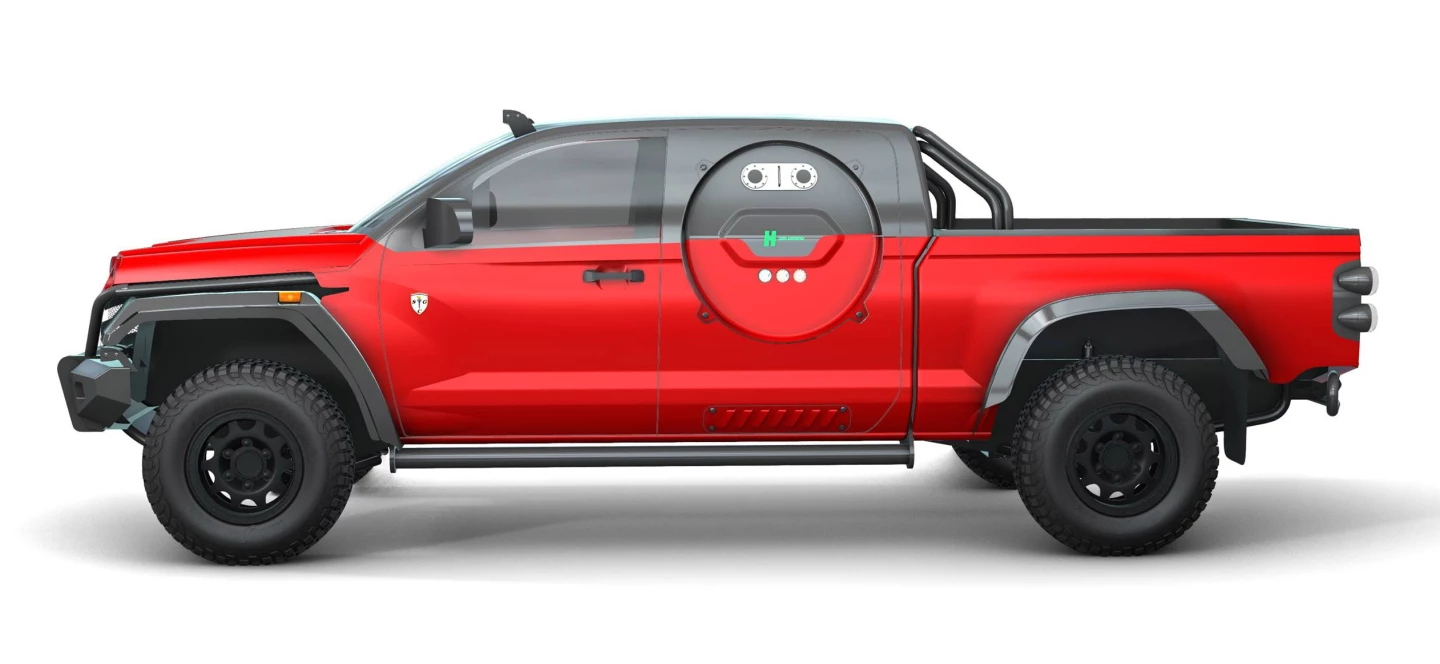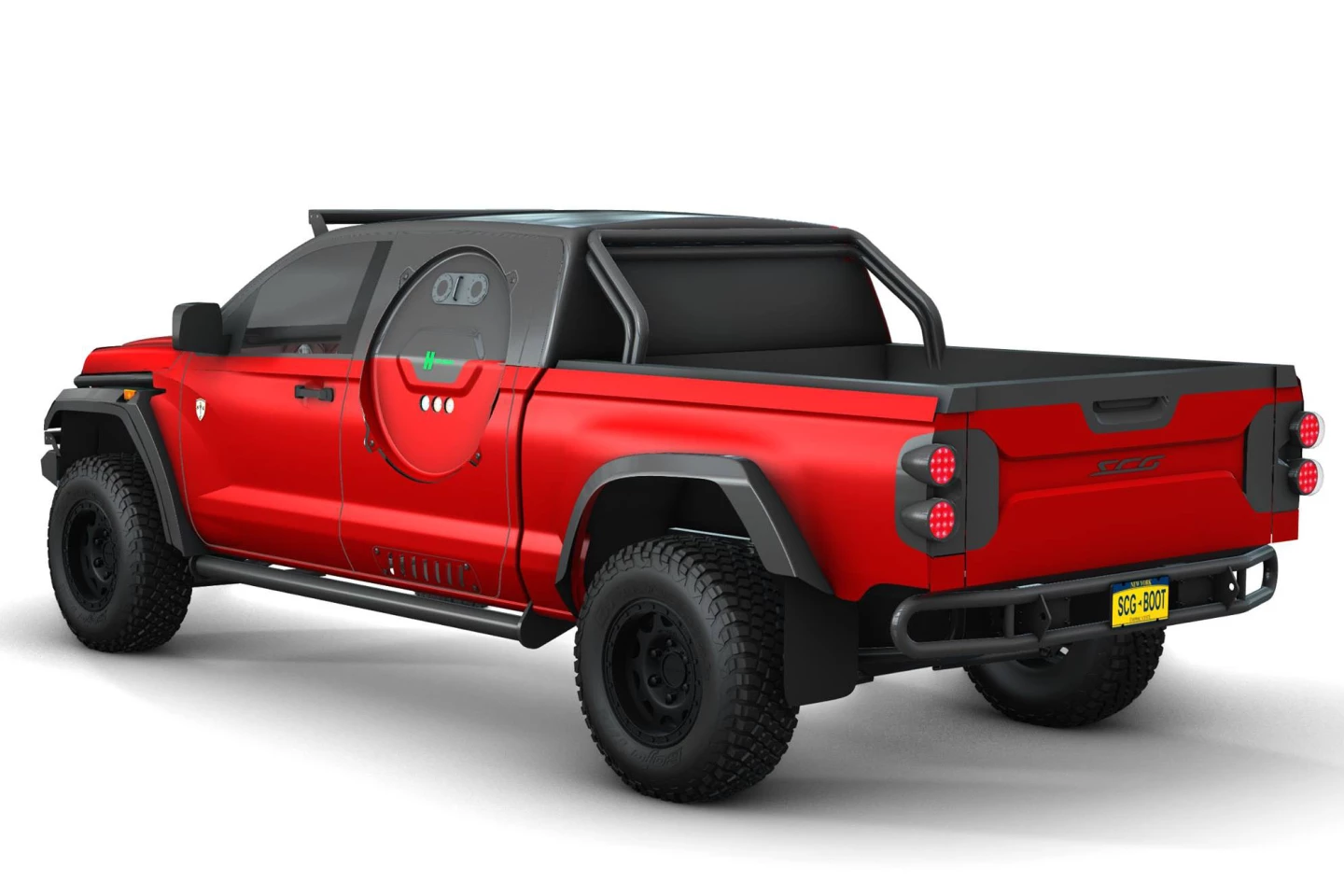Scuderia Cameron Glickenhaus has announced its intention to build an electric off-road truck powered by hydrogen through a fuel cell. The new project, if successful, would be the first zero-emissions vehicle to complete the gruelling Baja 1000 race.
Ex-movie producer and avowed car nut James Glickenhaus has a voracious appetite for extreme racing, be it at the 24 hours of Nurburgring, where SCG has taken six first-in-class wins with its ultra-lightweight SCG003 supercar, Le Mans, where it's planning to field a new SCG007 hypercar, or dodging cacti in the brutal Baja 1000 off-road desert race, where the SCG Boot debuted with a class win.
Having taken stock of his assets and divided them by the remainder of his life expectancy, Glickenhaus appears to be more or less planning to race himself into the grave, while building street-legal versions of his stunning race cars to keep the doors open.
His latest project, announced through social media, aims to go electric in the only way that's really practical right now for endurance racing: with a hydrogen-fuel-cell powertrain that can be topped up much quicker than a lithium battery.

The Glickenhaus Zero Emission Hydrogen Fuel Cell Boot Pickup Concept is an off-road racer with a body that's basically a quad cab ute with the back seats deleted and a meaty hydrogen system stuck in there instead, which SCG is specifying with a range over 600 miles (965 km) in mind.
Yes, it's a fuel cell, so the hydrogen will be converted into electricity and used to run an electric powertrain rather than being burned in the combustion engine. Yet still, SCG is considering manufacturing what it calls a "plug and play" system that could be used to covert any quad-cab pickup to hydrogen-electric. "Pull engine. That space becomes a trunk. Sell engine. Put in our unit," reads the company's response to an Instagram enquiry.
This will first and foremost be a race car, of course, with the Baja 1000 firmly in Glickenhaus' sights. It would also be designed to be Dakar-eligible, and "as capable as our current ICE Glickenhaus Class 1/2 Boot." Customer race teams could buy these for about half a million US dollars. The same money would buy you a "hand-built, road legal/fully Baja capable" SCG version, and a less racy street legal version "with similar GVWR and towing capacity as, say, a Chevy Silverado" would run you about US$100,000.

The company is also looking into building its own "reasonably priced, quick, 24/7/365 worldwide refueling solution," whatever that might look like.
SCG hopes to start building a prototype later this year, but Glickenhaus has already thrown down a challenge to Elon Musk and Tesla to come race the Cybertruck against this new beast. The response? "Crickets," according to SGC, but then Tesla is no racing operation, and running a battery-electric against a fast-refilling hydrogen car in a grueling endurance race would hardly give the Cybertruck a great chance at success.
Fun and games!
Source: Scuderia Cameron Glickenhaus







